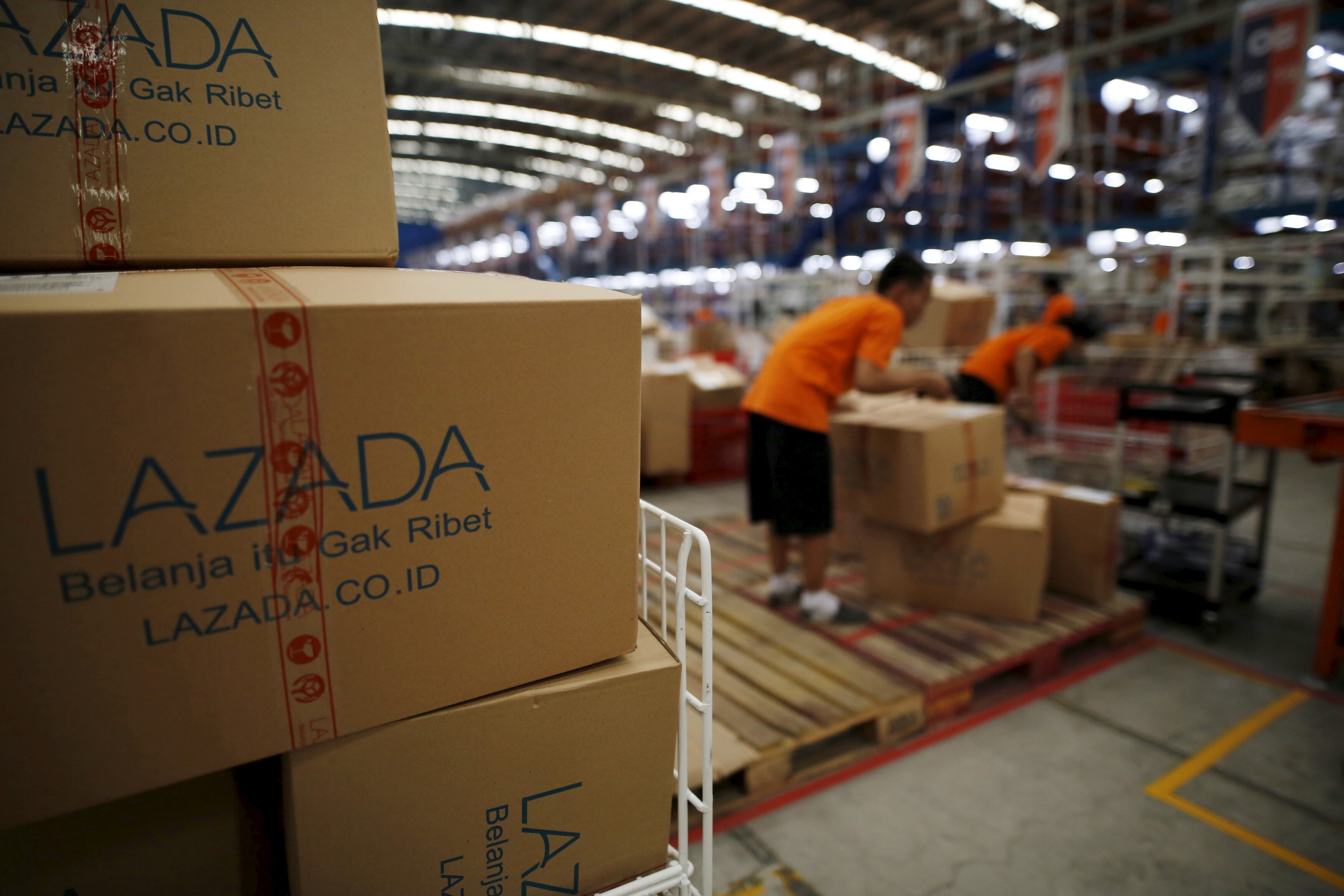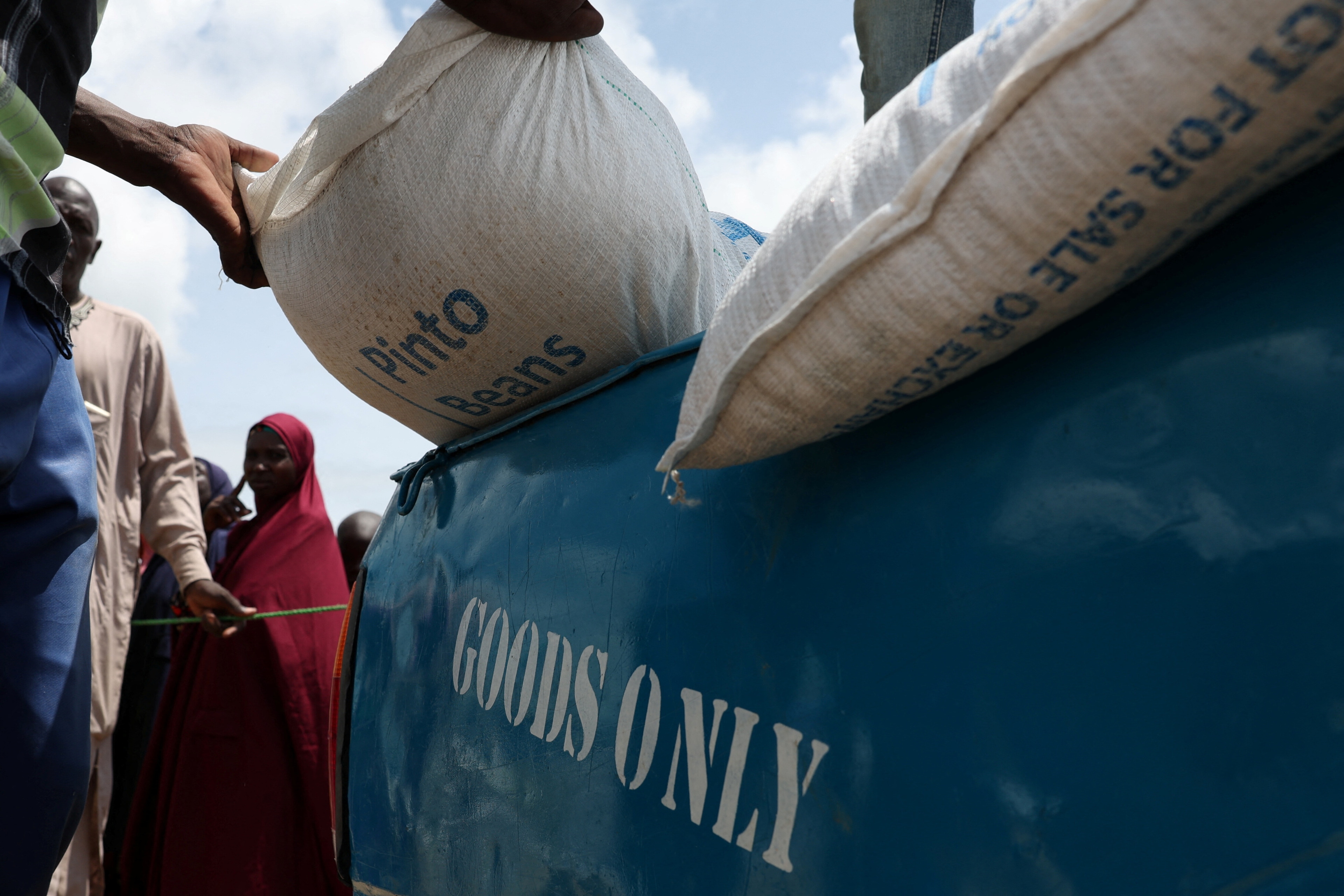We need better alignment between climate and trade. Here's a roadmap

We must explore and act on the links between trade and climate change Image: REUTERS/Aly Song
Carolyn Deere Birkbeck
Senior Researcher, The Graduate Institute, Geneva; Senior Research Associate, Global Economic Governance Programme, University of Oxford- Trade and climate policy-makers have worked in separate silos for too long.
- We need to have a deeper conversation around climate change and trade.
- Leadership and breaking down silos will be key.
International trade and climate change are two of the most vexing global policy problems. While the rise of trade wars and the inability of states to deliver meaningful climate results are well known, the links between trade and climate change have been under-explored. For too long, climate and trade policy-makers have operated in distinct silos. But the fact is that trade impacts the climate; regulation in one sphere will inevitably impact the other. A more sophisticated conversation about trade and climate change is vital.
We need more structured dialogue on three core issues:
- How can the multilateral trading system meaningfully help towards meeting the goals of the Paris Agreement, namely to limit global warming to 1.5°C and reach net-zero greenhouse gas emissions by 2050?
- What national or regional trade policy tools could be used to combat climate change without being disguised protectionism?
- How can the upcoming WTO Ministerial Conference in 2020 be used to achieve a step-change in how the world deals with trade and climate change?
How policy-makers think about improving the alignment of climate and trade regimes should be driven by these core principles.
First, achieving meaningful progress on the trade-climate nexus demands more concerted and effective leadership as well as focused attention on breaking down policy silos.
On leadership, we need governments, businesses and civil society to step up to articulate a vision of how trade can be made to work both for people and the planet.
Already, we can see some great examples of this:
- At the most recent COP25 round of climate negotiations, some 73 governments, 14 regions, 398 cities, 786 businesses, 16 investors and 2,100 signatories of the ICC Chambers Climate Coalition committed to achieving net-zero CO2 emissions by 2050 through the Climate Ambition Alliance.
- Among governments, the launch of negotiations for an Agreement on Climate, Trade and Sustainability (ACTS) between Costa Rica, Fiji, Iceland, New Zealand and Norway - which will focus on fossil-fuel subsidy reform, market access for climate-friendly technologies, and climate-related labelling – will serve as a valuable pathfinder for addressing the intersection of climate, trade and sustainability.
- At the WTO, 12 member states have endorsed a statement in favour of action to reform fossil-fuel subsidies, starting with information-sharing, and are working to attract more supporters. Further, the interest that a diversity of WTO members has expressed in the trade dimensions of a more circular and low-carbon economy, the trade impacts of climate-related natural disasters, greening aid for trade, market access for climate-related technologies and transportation-related CO2 emissions also warrant more structured dialogue and attention.
- Around the world, civil society groups committed to net-zero carbon emissions are spearheading practical campaigns and partnerships to promote less carbon-intensive production, distribution and consumption choices in order to lower the carbon footprint of international trade.
What’s the World Economic Forum doing about climate change?
To break down silos, trade policy-makers and their environmental counterparts need to talk to each other more. Here, there is some important work underway. For example, UN Environment, UNCTAD and the OECD each support greater interaction between environmental policy-makers and trade negotiators. But more is required. That is why the International Chamber of Commerce is hosting the heads of UN Environment and the WTO at this month's Davos conference to discuss how to promote stronger alignment of trade and climate regimes, and how to get business more involved in this important mission.
To date, international talks on climate and trade have been conducted in separate forums. At the most recent climate talks (COP25 in Madrid), there was very little visible interaction between the climate and trade communities. At the WTO, there is a reluctance among too many governments to engage proactively – even in dialogue – on trade-related challenges and opportunities with regard to climate action. And curiously, many of the governments pushing for climate ambition at COP are not pushing for the same climate ambition at the WTO.
Governments must ensure more systemic interaction in national capitals on the trade and climate nexus, between international organisations active on these issues, and with business and civil society stakeholders. Critically, this must extend to more dialogue among and with developing countries on efforts to address the intersection of climate and trade.
Second, there needs to be more serious thinking around the complex issues of policy coherence on trade and climate. Both trade rules and climate policy are incredibly complicated, and aligning the two regimes will be difficult, from a policy, legal and technical standpoint.
The multilateral trading system has a vital role to play in achieving the world’s climate goals. Cooperative, multilateral approaches are essential for ensuring the effectiveness and fairness of emerging climate policies, especially where supply chains for products and services are distributed across the globe, and even those businesses most committed to climate action have competitiveness concerns.
On climate and trade, policy actions like climate waivers, climate clubs, carbon pricing and border-adjustment measures should all be carefully considered as a way of kickstarting multilateral action. But a range of policies and initiatives could form part of the toolkit.
On all these issues, policy proposals should be driven by the UN Sustainable Development Goals and should be people-centred. Climate actions should also not become backdoor protectionism.
Third, after a disappointing COP25 on climate, the next major opportunity to align trade and climate governance will be the WTO’s 12th Ministerial Conference in June 2020. While some may say the WTO already has enough difficult issues to deal with, nothing would reinvigorate and modernise the WTO like stepping up efforts to meaningfully address climate change and support inclusive multilateralism.
The Ministerial presents a critical political opportunity to secure commitments to greater environmental sustainability from the WTO’s full membership. Looking forward, WTO Members should explore options like a Ministerial Statement on Environmental Sustainability and a plurilateral initiative of like-minded WTO members to catalyse progress on aligning trade and climate policy.
The private sector is demanding action on climate as well as practical reforms to make the global trading system work not only for people but also for the planet. Aligning the trade and climate policy regimes is an opportunity that cannot be missed.
Don't miss any update on this topic
Create a free account and access your personalized content collection with our latest publications and analyses.
License and Republishing
World Economic Forum articles may be republished in accordance with the Creative Commons Attribution-NonCommercial-NoDerivatives 4.0 International Public License, and in accordance with our Terms of Use.
The views expressed in this article are those of the author alone and not the World Economic Forum.
Stay up to date:
Trade and Investment
Forum Stories newsletter
Bringing you weekly curated insights and analysis on the global issues that matter.








